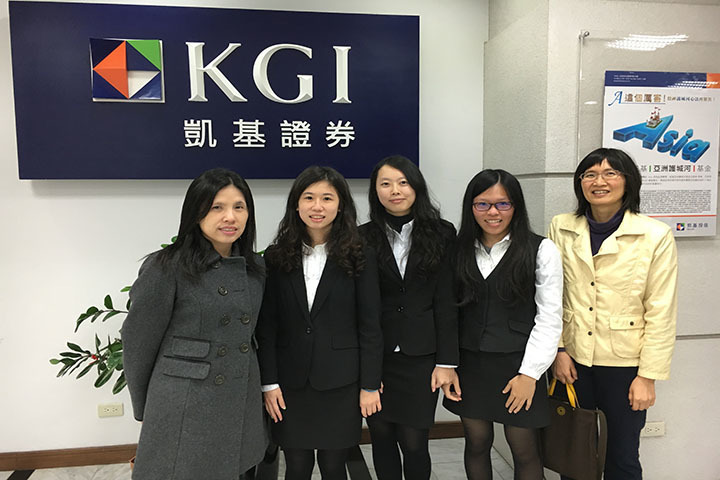Dept. of Finance (Introduction to the Department)


With the impacts of internationalization, liberalization, and privatization, the business risk has been largely increased in the overall environment of Taiwanese enterprises. In order to respond and adapt to such an unprecedented competitive environment, enterprises don’t only have to focus on marketing and innovation of their principal businesses, but they also have to focus on the aspects of financial management and financial risks.
The environmental change of enterprise management leads to the knowledge creation in the financial management discipline, which are the important factors affecting the long/medium-term teaching and research plans of the department in the coming years. With the growing popularity of individual financial management, various kinds of financial management tools and related knowledge cultivation have already become the necessary needs of our daily life. In addition, the university education not only needs to cultivate students to foster with a certain level of professional knowledge but also needs to cultivate them on the basis of humanity and general knowledge education. Therefore, the department’s long/medium-term development plans upholds the principle of training the students to be able to employ basic financial management knowledge and tools to solve the practical problem. Overall, the department does the best to increase the employment competitiveness for its students.
As a result, students graduating from the Finance Department will have practical learning capabilities, and their solid financial management knowledge can produce practical and useful effects on individuals, families, enterprises, and the society.
The objective of the Department is to cultivate financial management knowledge. The aim of our research facilities is to develop the industrial practical knowledge and the application of commercial computer software. The infrastructure up-gradation of basic computer labs and the purchase of commercial application software will be enhanced on yearly basis. Currently, the research directions of the Department include:
1. Investment analysis and asset allocation.
2. Financial risks, industrial strategies, and industrial analysis.
3. Financial statement analysis and practice.
4. International exchange risk and international finance.
The Bachelor Degree program courses are mentioned below:
|
First Year |
Mathematics Business |
|
Accounting (Ⅰ) |
|
|
Economics(Ⅰ) |
|
|
Management |
|
|
Accounting(Ⅱ) |
|
|
Economics(Ⅱ) |
|
|
Creative Thinking and Innovation Management |
|
|
Second Year |
Financial Management(Ⅰ) |
|
Cost and Managerial Accounting(I) |
|
|
Introduction to Fintech Development |
|
|
Intermediate Accounting(I) |
|
|
Management of Financial Database |
|
|
Internship(I) |
|
|
Financial Management(Ⅱ) |
|
|
Money and the financial system |
|
|
Intermediate Accounting (II) |
|
|
Financial Information System Design |
|
|
Cost and Managerial Accounting( II ) |
|
|
Industrial economics and decision-making |
|
|
Tax Laws |
|
|
Accounting software(I) |
|
|
Third Year |
Investment |
|
Advanced Accounting(I) |
|
|
Financial Information System Applications and Practices |
|
|
Financial Econometrics |
|
|
Accounting Information Systems |
|
|
Audit and Supervision on Financial Information |
|
|
International Finance and Foreign Exchange |
|
|
Auditing (I) |
|
|
Bill law and Banking law |
|
|
Fintech and Wealth Management |
|
|
Futures and Options |
|
|
Advanced Accounting(II ) |
|
|
Digital Financial Risk Management |
|
|
International Financial Management |
|
|
The Analysis of Financial Statements |
|
|
Auditing (II ) |
|
|
R Programming Design |
|
|
Technical Analysis |
|
|
Fourth Year |
Special Topics(II) |
|
Financial Service Industry Practical Training(Ⅰ) |
|
|
Financial Service Industry Practical Training(Ⅱ) |
|
|
Financial Service Industry Practical Training(Ⅲ) |
|
|
Financial Services and License Practices(I) |
|
|
Financial Services and License Practices(II) |
|
|
Financial Management Industry Practical Training(Ⅳ) |
|
|
Financial Management Industry Practical Training(Ⅴ) |
|
|
Financial Management Industry Practical Training(Ⅵ) |





